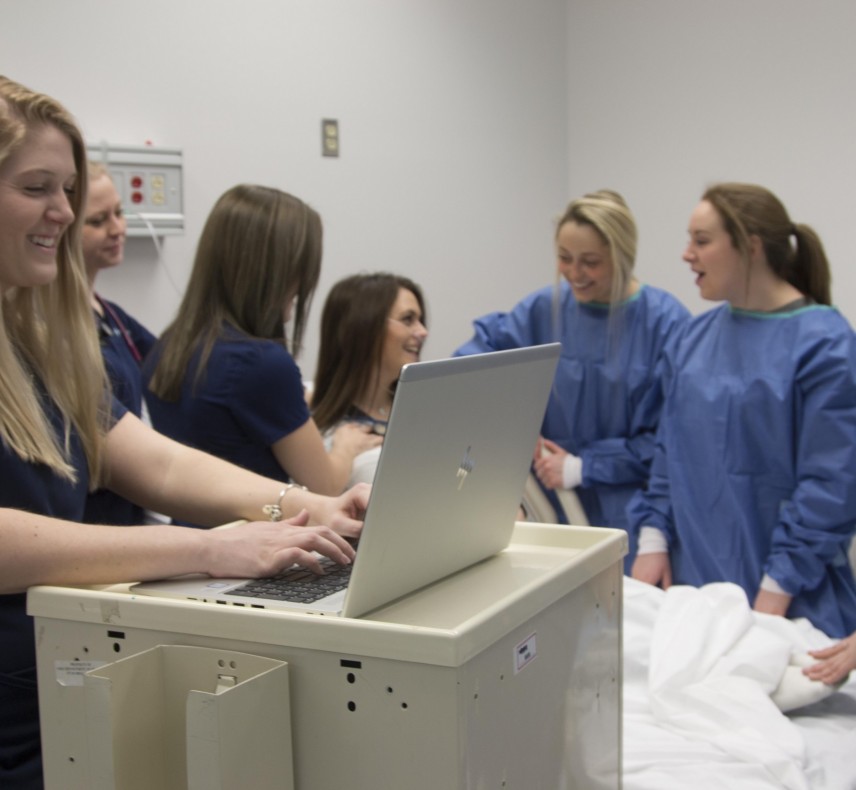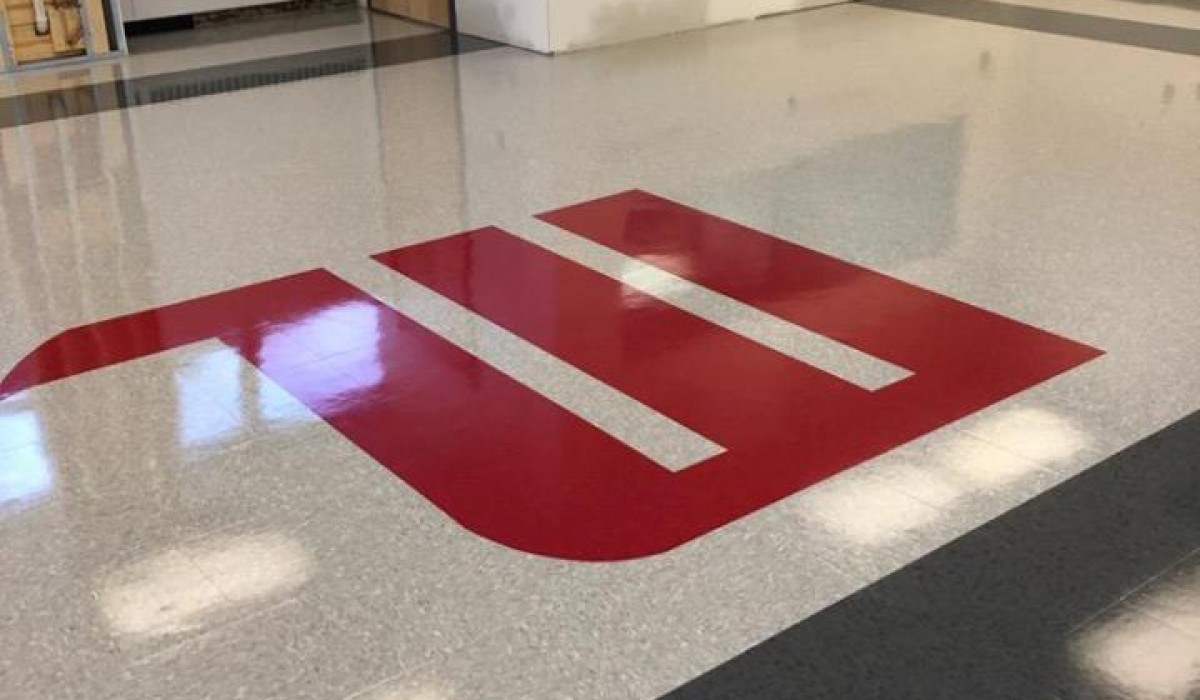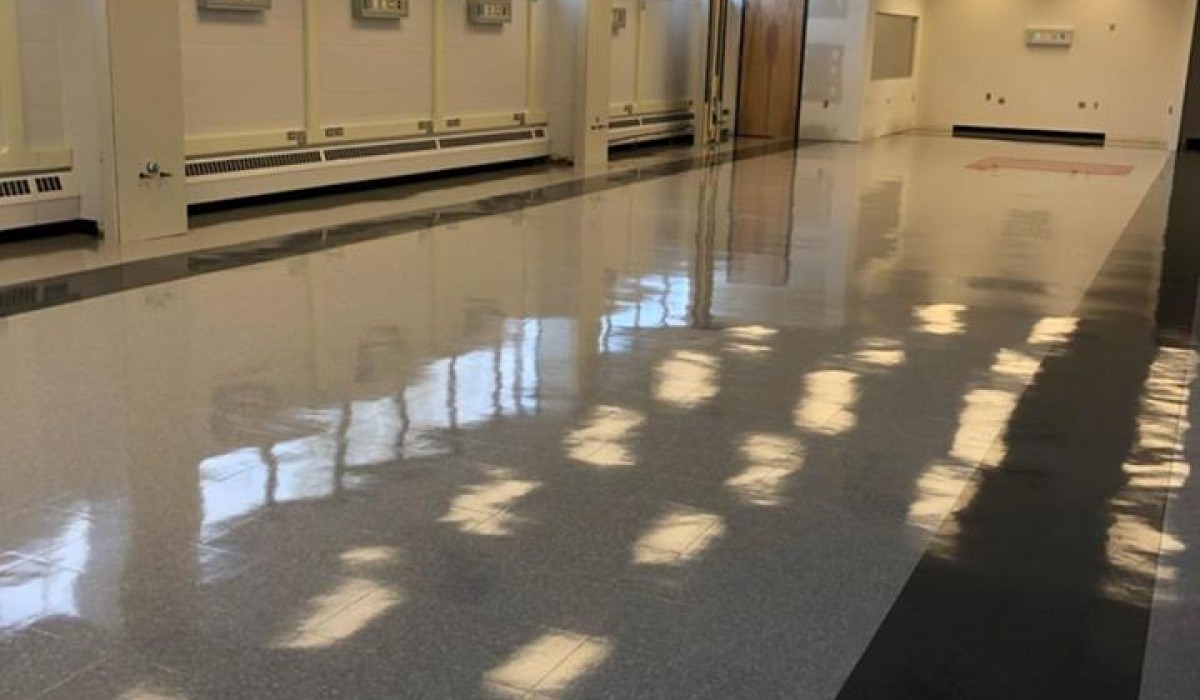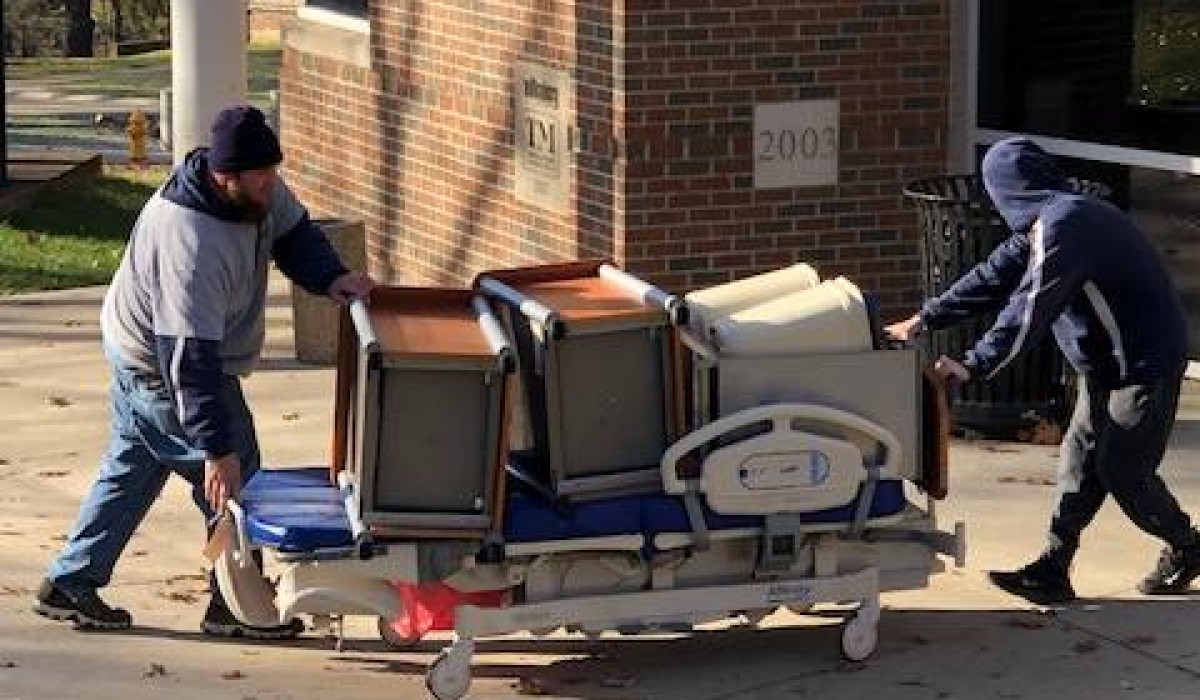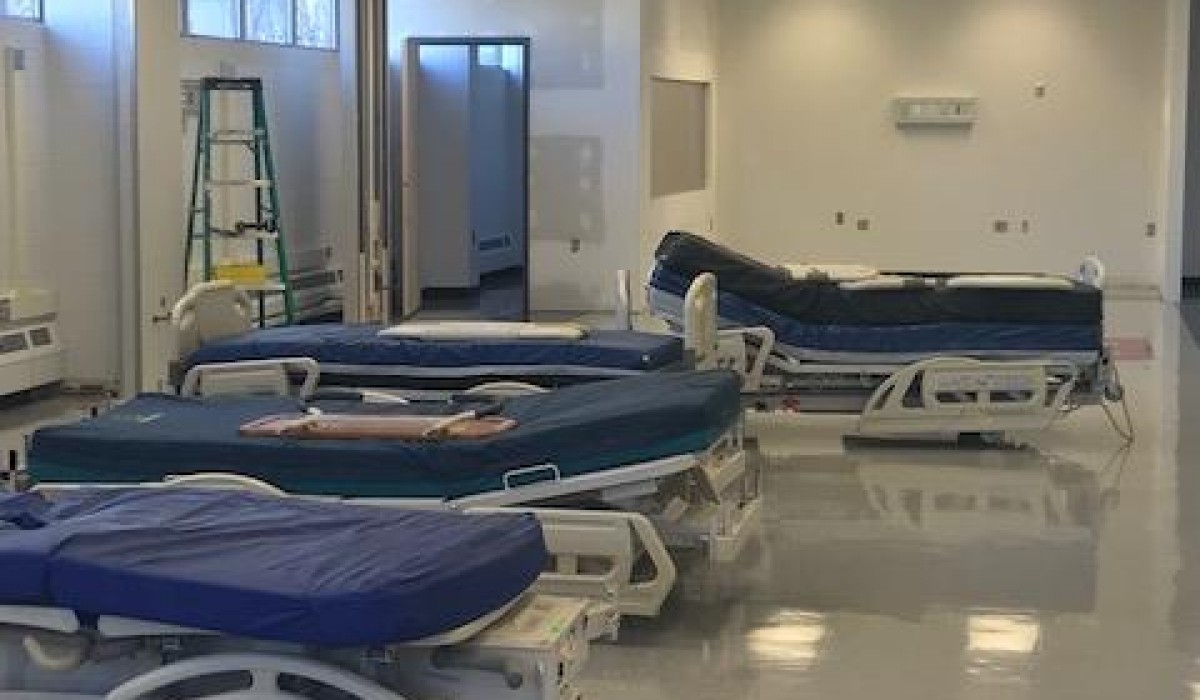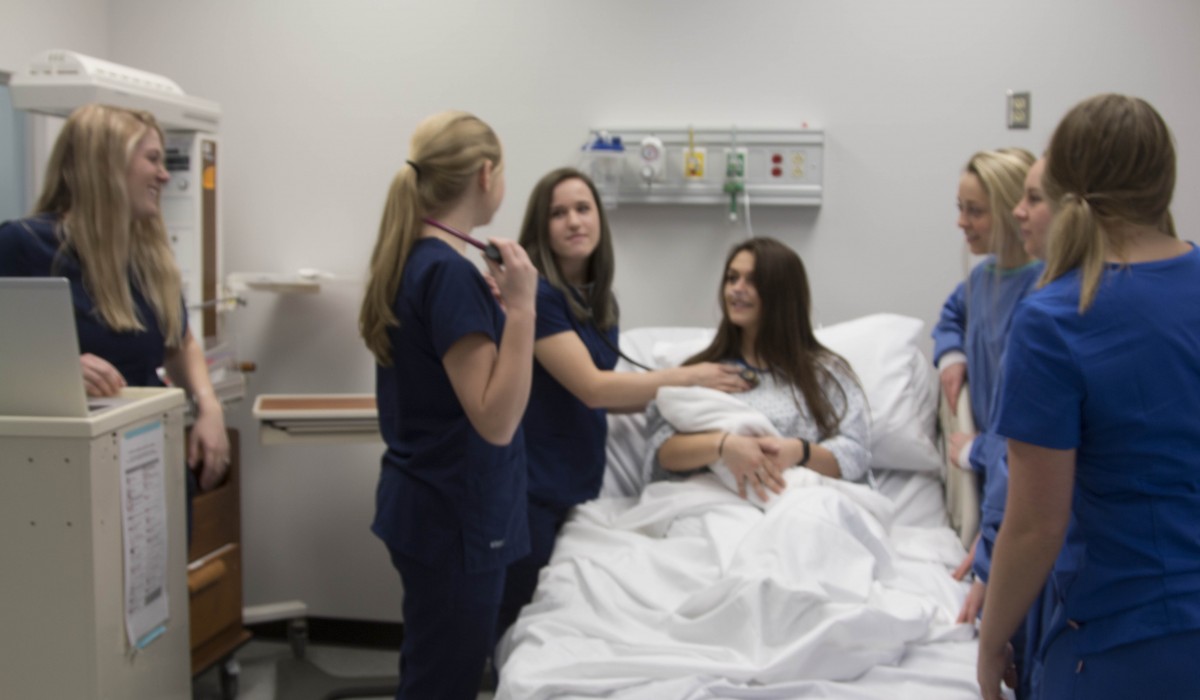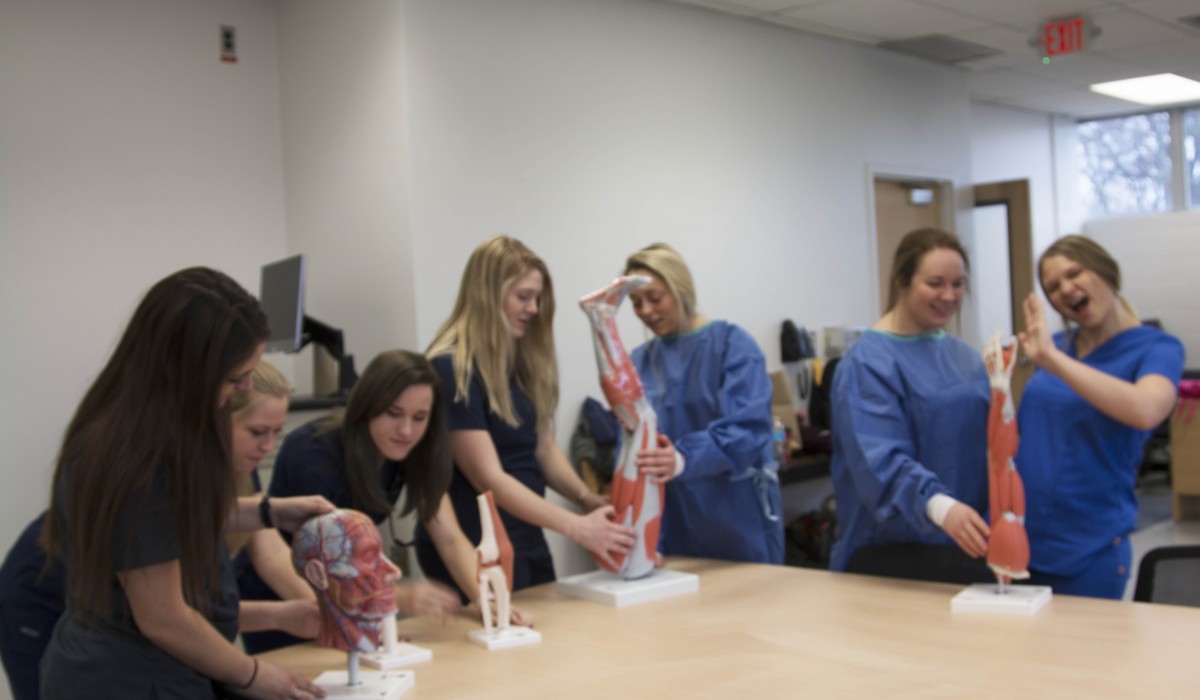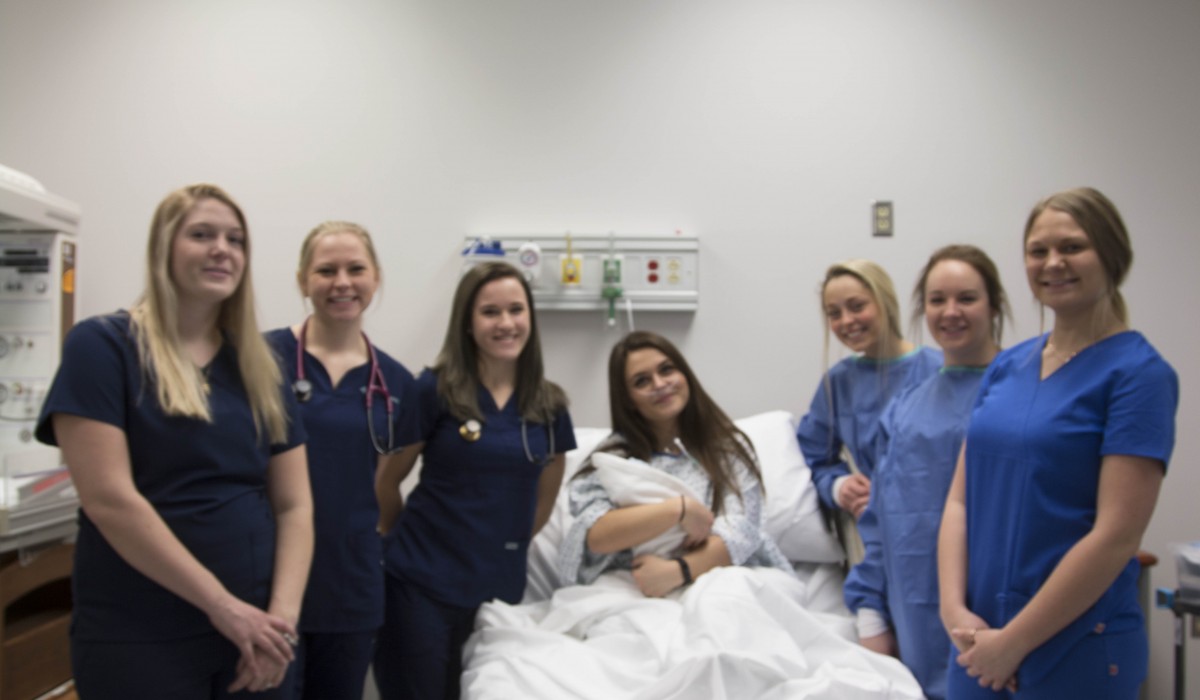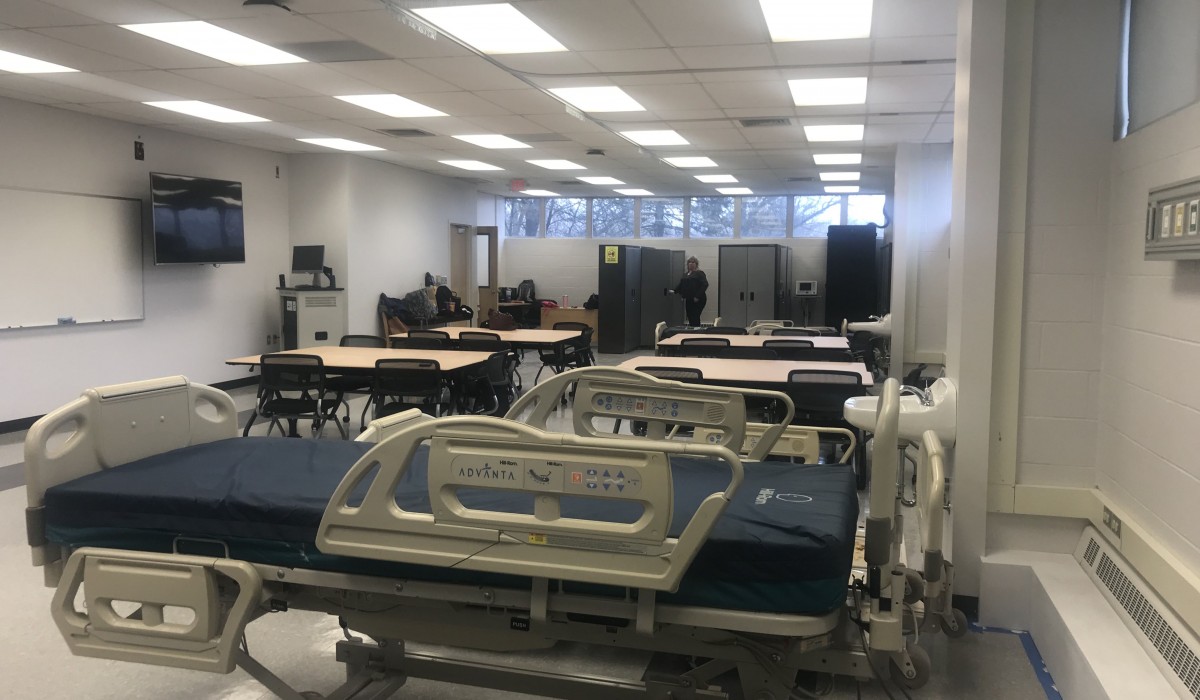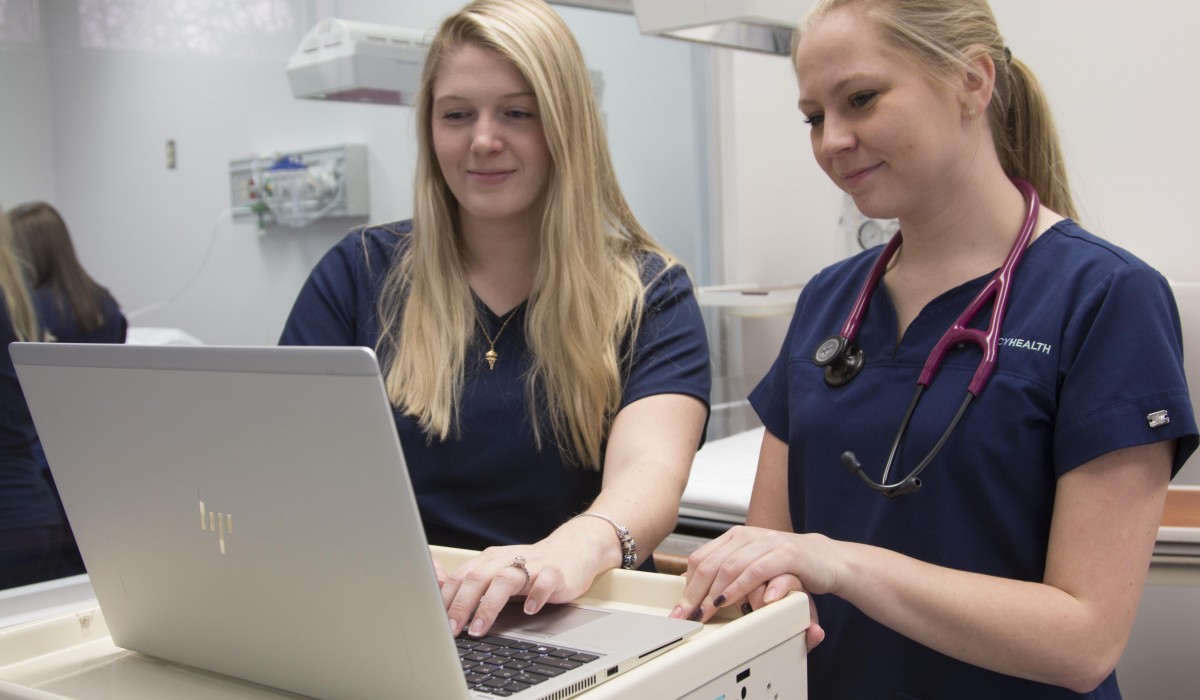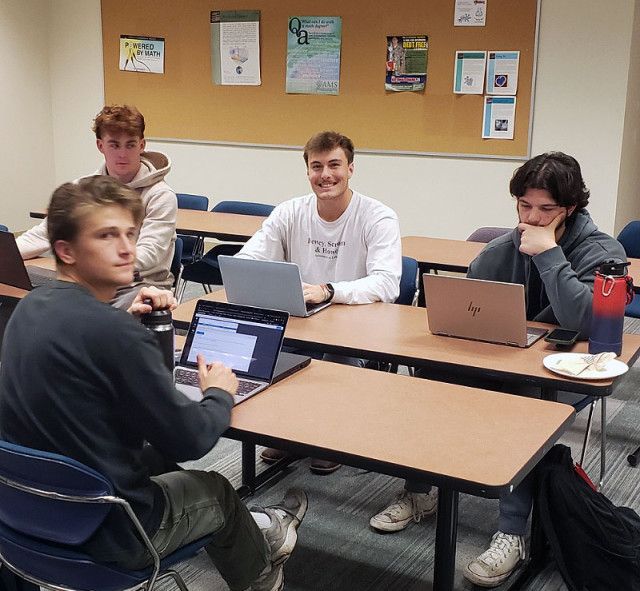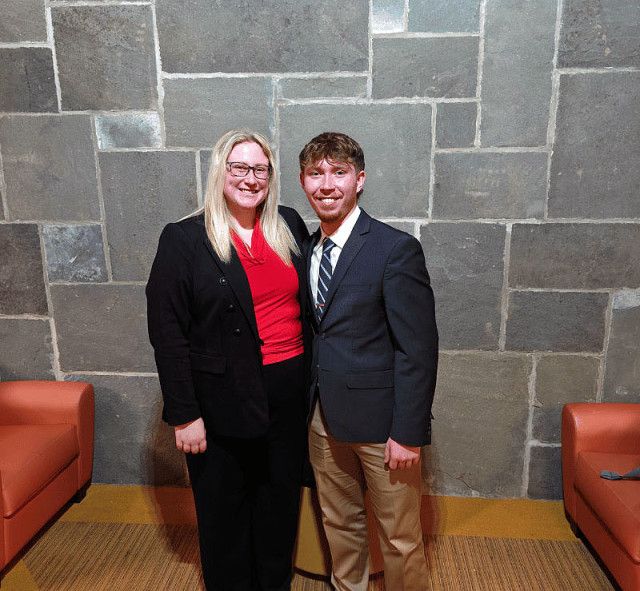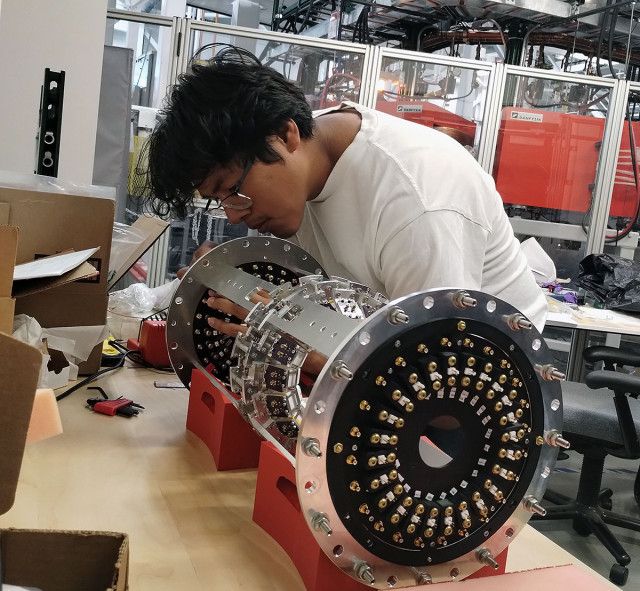Wittenberg University is truly thankful that Premier Health Partners are such “good Samaritans.”
In November 2018, Premier Health Partners donated more than $31,000 in hospital equipment to Wittenberg after the closing of Good Samaritan Hospital in Dayton. Wittenberg’s nursing program received the equipment to operate its new simulation lab in the Barbara Deer Kuss Science Center, room 237. Donated items included six hospital beds, an infant warmer, bedside and over-bed tables, a ventilator, four IV pumps, two code carts, and two medication carts. The simulation lab is a requirement for every pre-licensure nursing program. The lab opened this semester and is where the BIOL 162 Anatomy lab is being taught every Tuesday and Thursday.
In May 2018 Wittenberg received approval from the Ohio Board of Nursing, Ohio Department of Higher Education, and Higher Learning Commission to offer its own four-year, fully self-contained Bachelor of Science in Nursing (BSN) program. Wittenberg’s program is the only BSN program in Clark County. National initiatives call for 80 percent of hospital-based bedside nurses to have the BSN credential by the year 2020. Wittenberg Nursing, with its liberal arts heart, is poised to contribute locally to this national goal.
“Every nursing program that prepares students to take the national licensure exam (NCLEX-RN) must provide opportunities for students to learn caregiving skills in a safe environment (where no patients could be inadvertently harmed) before taking them into real patient situations,” said Elizabeth Sorensen, professor and director of nursing. “The Good Samaritan equipment will help students learn to operate hospital equipment, make sound clinical decisions, and provide good care in all sorts of simulated hospital and community situations. We will simulate care for all ages from newborns to older adults, including childbirth, critical care, mental health, community health, and even death care.
“This was a huge blessing,” Sorensen added. “The equipment came to Wittenberg just because we asked. When we heard that Good Samaritan items would be donated, we created a wish list of hospital equipment, explained our intended use (educating the next generation of nurses), and sent it in to the Good Samaritan donation committee. Wittenberg was one of 117 requestors for Good Samaritan equipment so I was completely surprised and humbled when they gave us nearly everything on our list. I guess you could say that they were being Good Samaritans.”
Wittenberg expects the nursing program to be financially self-sustaining by its second year. The 1,800-square-foot, state-of-the-art nursing simulation learning center was developed this fall and will soon be fully equipped once the human patient simulators called “manikins” arrive.
“The ‘Sim Lab’ is the most requested tour site for pre-nursing students who are deciding where to enroll,” Sorensen said. “We look forward to helping students enter this in-demand health care field, while also helping area employers improve their BSN nurse staff. BSN students learn more about research, leadership, and community health than students in associate degree nursing programs.
“Wittenberg’s decision to open and equip the new pre-licensure nursing program will steadily increase enrollment,” Sorensen added. “Nursing is an academic field that will keep on growing far into the future because the population is steadily aging. Nurses will always have work, and nursing is such a versatile practice field. For example, I was an operating room nurse. (Professor of Nursing) Cherie Rebar is a mental health expert and (Associate Professor of Practice) Tiffany Losekamp was a pediatric nurse.”
The donations from Good Samaritan came about by first envisioning what Wittenberg would need to launch a successful world-class, pre-licensure nursing program three years ago. From that vision, Sorensen and her team created the new program proposal and considered different off-campus and on-campus sites for the simulation lab. The new program proposal contained a detailed hospital equipment list and budget with help from Darby Hiller, assistant provost. Once it was decided that 237 SCI would be the best location, a floor plan was developed.
“Our friends at Springfield Regional Medical Center shared blueprints of several different types of their hospital rooms,” Sorensen said. “The blueprints helped us develop the 237 SCI floor plan and we realized that the space could accommodate six hospital beds - five regular beds and one birthing bed. I specifically wanted a birthing bed. From my experience teaching maternal childbirth clinical, the birthing beds are a little different than regular beds. We submitted the wish list in August 2018 and heard the results in November 2018. I visited Good Samaritan, reviewed the donated equipment, and they delivered it the next day. The equipment and its delivery were entirely donated. If Wittenberg would have ordered new equipment, it would have cost us around $50,000. I imagine the shipping would have cost several hundred dollars more along with Wittenberg’s personnel costs of processing and receiving. So, the Good Samaritan equipment donation saved Wittenberg a lot of money and time. I was completely humbled with gratitude; I felt God’s hand at work in making Wittenberg’s program successful.”
Wittenberg’s four-year BSN program is for students who are not yet registered nurses, and all pre-nursing students will be considered for the highly-competitive program, which will prepare them to take the national registered nursing licensure exam. The nursing program’s mission is guided by the Wittenberg University mission and by the American Association of Colleges of Nursing Essentials of Baccalaureate Education for Professional Nursing Practice (2008), which seeks to prepare students with a liberal arts education for baccalaureate generalist nursing practice and to provide a foundation for graduate education.
“I think the future for this program is unlimited,” Sorensen said. “The 237 SCI sim lab is a great place to start, but the nursing program will outgrow this space pretty quickly as enrollment grows. We will need space for a department of nursing, need to hire more nursing faculty, and need to keep expanding our clinical agreements with area healthcare agencies. But we move forward with wisdom, experience, careful planning, and an eye on global healthcare needs. Wittenberg is already attracting students and student-athletes, who want to come here because we now have our own nursing program. Nationally there are always far more students who want to study nursing than there are seats available in nursing programs. When Wittenberg decides we’re ready to advertise our nursing program nationally, I believe the floodgates will open.”
For more information on all nursing-related opportunities, please visit the Wittenberg Nursing website or contact Sorensen at sorensene@wittenberg.edu.


